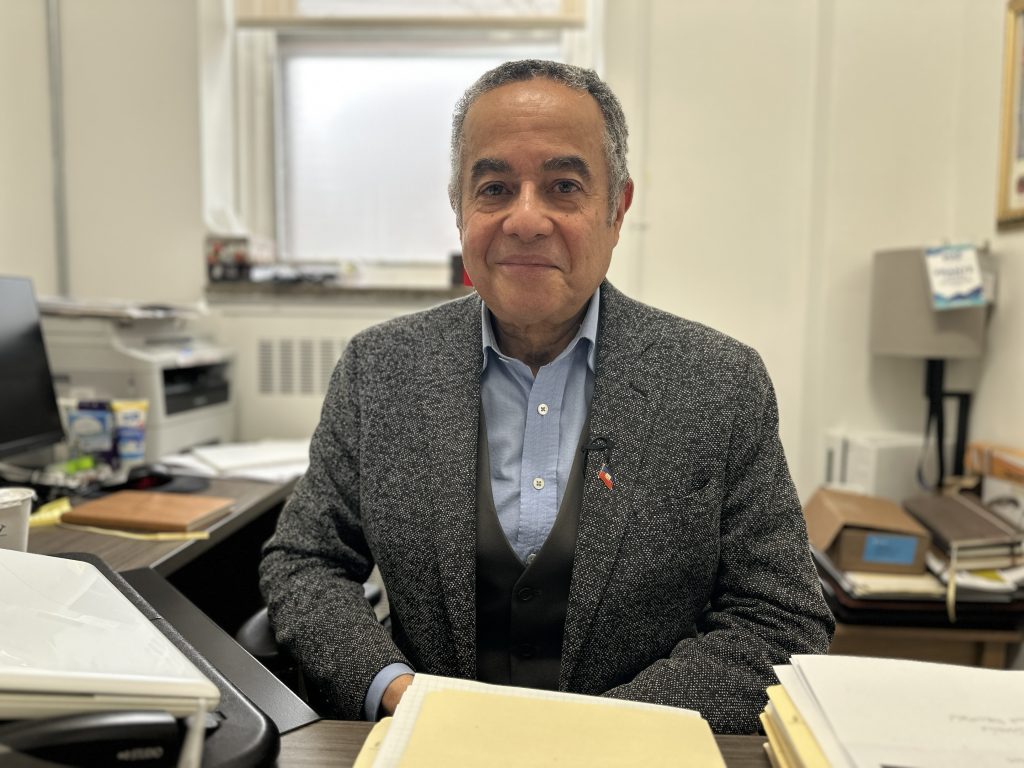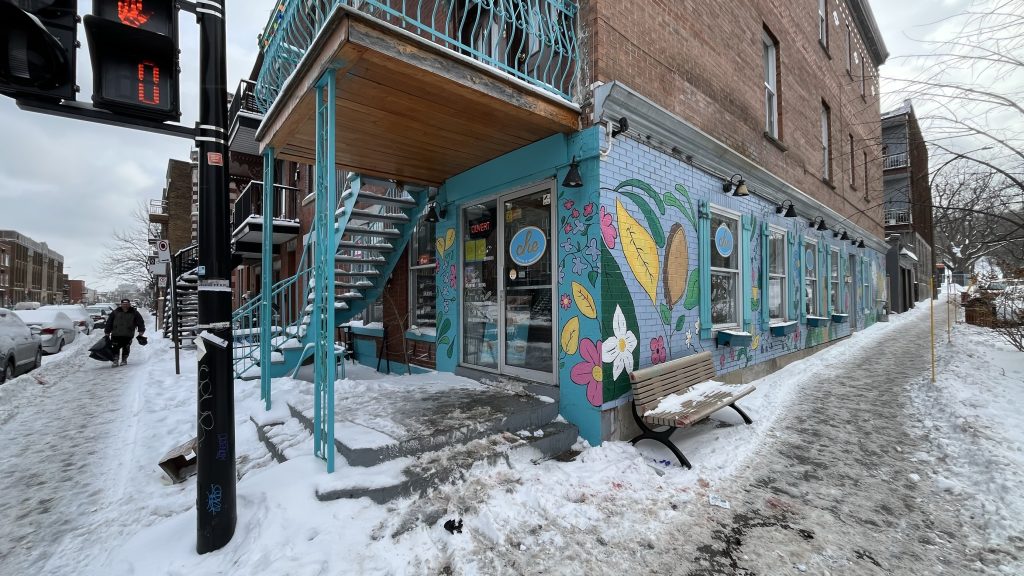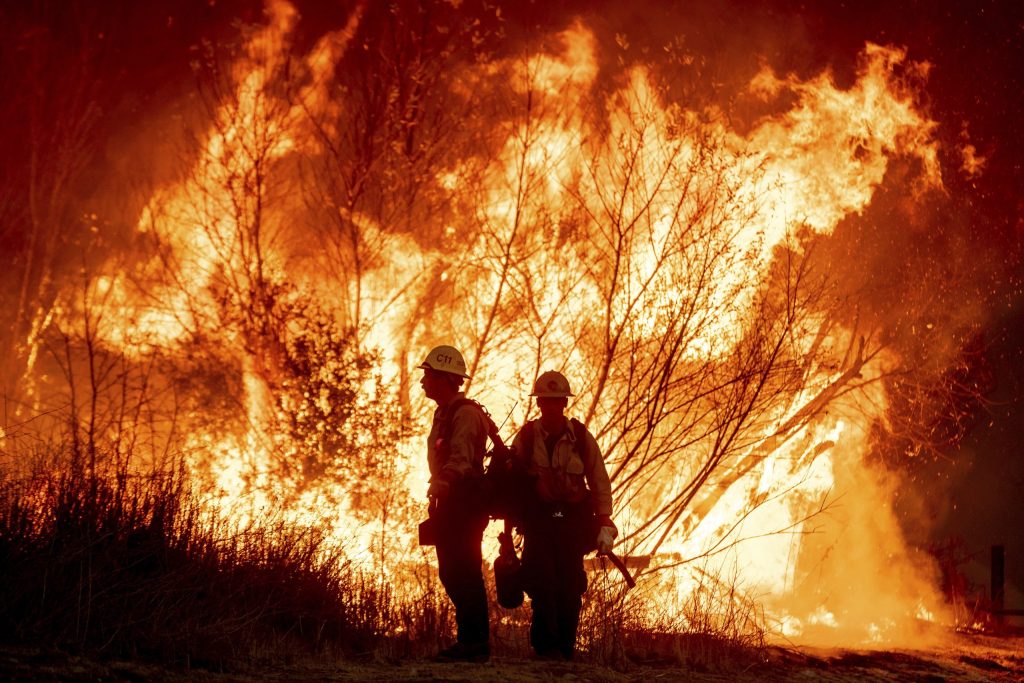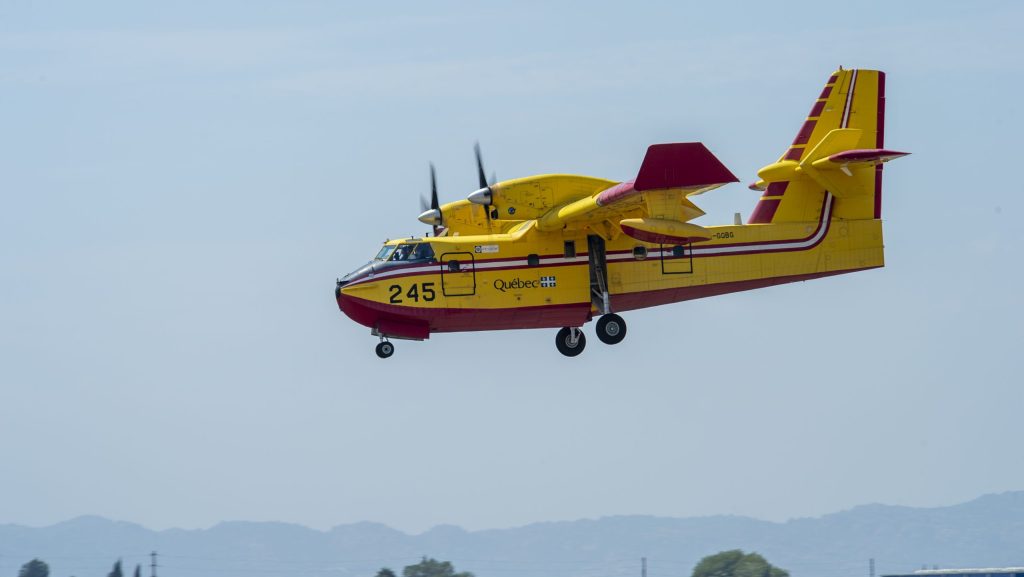Quebec to deploy 300 officers at border if there’s influx of migrants following Trump inauguration
Posted January 14, 2025 11:51 am.
Last Updated January 14, 2025 7:45 pm.
Quebec’s Public Security Minister François Bonnardel – along with Sûreté du Québec – say they’re ready to strengthen security at the U.S. border, should there be an influx of migrants there following the Jan. 20 inauguration of U.S. president-elect Donald Trump.
At a press conference in Quebec City Tuesday, Bonnardel said the province is concerned about the illegal migration occurring in the Swanton sector, between Quebec and the United States, calling on the Royal Canadian Mounted Police (RCMP) to place the necessary personnel there.
“We need to know what will be invested quickly by Ottawa by March 31 in terms of staff for the RCMP, in terms of additional equipment,” Bonnardel said. “We saw a big announcement, but we are still waiting for the details.”
Last month, the federal government promised to implement new security measures along the border, including strengthened surveillance and a joint “strike force” to target transnational organized crime.
“My department is in constant contact with its many partners in Quebec, Canada and the United States to ensure that the safety of our citizens is not compromised on both sides of the border,” Bonnardel said, in a press release.
This comes following Trump’s threat of a 25 per cent tariff on Canadian goods if the country doesn’t secure its shared border to the flow of irregular migrants and illegal drugs.
“Recent announcements by the next American presidency lead us to increase our surveillance so that no one tries to slip through the cracks to settle irregularly in Quebec,” Bonnardel continued.

Frantz André is the spokesperson for Action Committee for People Without Status and says Canada is giving into the threats of the tariffs. He also says a new U.S. administration may spell bad news for migrants.
“Donald Trump is threatening a massive deportation of 11 million of people, so, of course, they’re scared and Canada is one of the options,” he said. “So I’d like to know what the United States is doing to stop the influx from the U.S. to Canada.”
Bonnardel said there isn’t currently a significant migratory flow coming from the U.S., but added that over the last three years, there has been an increase in illegal crossings — particularly at the Swanton sector, which links Quebec and Ontario to several American states, including Vermont and New York.
Of the 26,000 illegal crossings that occurred in 2024, 19,000 occurred in this sector, Bonnardel said.
He added that there are more than 800 police officers ensuring security in the Swanton area — and more Sûreté du Québec (SQ) officers could be added if needed.
“The Sûreté du Québec, through the management of these emergency measures, will be able to deploy 300 additional police officers within 24 to 48 hours if the need arises,” he said.
Bonnardel says that while the federal government recently pledged $1.3 billion to upgrade security, it’s unclear how that money will be parcelled out. The minister plans to join Quebec Premier François Legault in Ottawa on Wednesday for a meeting involving provincial and territorial leaders and the federal government over border concerns.
The largest percentage of migrants who cross illegally into the U.S. are Indian nationals, Bonnardel said. “Why the Indian community? From what I understand, these people arrive (in Canada) legally with permits and visas and try to cross to the other side.”
Bonnardel added that Quebec currently has three investigators in the U.S. “We will triple these personnel in these three American stations to go from three to nine starting Jan. 13,” he said.
André Santerre, Deputy Director General of the SQ, says officers at the border deal with a variety of interventions.
“Often calls from citizens who are concerned about highway robbers, suspicious vehicles,” he said. “We also have distress calls, from people who are in distress or lost in the forest.”
“I’m personally getting a lot of people from the States calling me asking me how can I get to Canada,” André said. “There’s exceptions, which are very limited.”
André says possible deportations may give way to more illegal crossings.
“My concern is more that inviting people to go through the unofficial […] manner in a season where it’s going to be very cold — it is very cold — and taking risks for their lives,” he said.
Quebec believes that the president-elect has legitimate concerns, particularly about immigration.
“80 per cent of the Canadian problem is almost here, so at the Ontario border, part of Akwasasne, up to Sherbrooke,” Bonnardel added. “So, concretely, we must put at least 80 per cent of the possible or future efforts on the part of the RCMP, the CBSA, on this sector to show the Americans that there is a decline that will continue in the coming months.”
Bonnardel also added that there was no fentanyl problem at the Quebec-United States border.
“The SQ works jointly with various Canadian and American partners, combining investigations and intelligence, in order to counter drug and firearms trafficking at the border,” said Santerre.
“Our Director General, Johanne Beausoleil, also renewed, on Nov. 26, the Declaration of Common Vision signed with police leaders from the states of New York, Vermont, New Hampshire and Maine,” Santerre continued.
“This initiative aims to develop and strengthen the community of exchange and collaboration between our police services by encouraging the development and sharing of best practices.”
-With files from The Canadian Press








